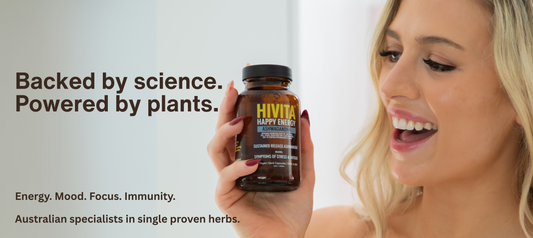Managing stress when you are busy at work

Are you a workaholic?
The 'Workaholic" is a classic example of the individual who does not read the signs of stress and pushes through the warning signs, running the risk of developing a stress-related condition. He or she often experiences fatigue, has a poor diet and therefore poor general health. High stress levels, over-committed schedules, high caffeine intake and increased nicotine/alcohol intake lead to complications such as dependence on these substances for sustained performance. The workaholic often is in denial of their stress problems, often becoming angry, impatient and manipulative. This can lead to communication breakdowns at work and home, refusing to acknowledge the dramas they are creating around them.
5 Signs you are a workaholic:
- Are you feeling tired, weary or run down?
- Do you have trouble sleeping?
- Can you feel your pulse or heart racing?
- Does your last meal feel like it is still processing?
- Have you had recurrent minor infections?
The common denominator between these complaints and conditions may be stress - mental, emotional or physical.
How to manage stress around your busy schedule:
1. Natural stress evaporators:
- Calming herbal teas and tisanes especially passionflower, lemon balm, St John's wort, lavender, vervain and chamomile can soothe the edgy nervous system. It is best to drink three cups of calming herbal tea daily to sustain the relaxation effect of these herbs. They are also beneficial for digestion and memory enhancement.
- Sedative herbs, such as hops, valerian and zizyphus can improve the depth and duration of sleep for restorative benefits to the brain and nervous system.
- Superfoods such as maca, spirulina, pomegranate and berries can be added to a predominantly organic diet to optimise the body's nutrient stores so that they can be utilised f or replenishment and repair of tissues and organs affected by stress.
- Essential fatty acids (from krill, oily fish, flaxseed) buffer the nervous system against the impact of stress and prevent chronic anxiety states and reduce phobias.
- Replace nutrients to recharge neurochemicals and balance your nervous system, especially the B-complex of vitamins and cofactors such as choline, minerals (potassium, magnesium) and amino acids (lysine, glutamine).
These need to be sourced from a comprehensive diet or supplement regime. A high quality stress-relieving nutritional supplement should include high levels of B-vitamins, in particular a blend of nicotinamide and nicotinic acid. Cortisol metabolism requires adequate intake of vitamins B5 and B6 in particular.
2. Stress relieving therapies:
Acupuncture and shiatsu can provide relief from tension, anxiety and depression, release stress and support systems recovery. Therapeutic massage is more than just a treat, it is necessary touch for relieving muscle tension, reducing pain and improving circulation. Yoga is the best stress antidote activity f or body, mind and spirit and meditation has been extensively researched and found to manage stress-related conditions impressively. In fact, it should be the core component of any stress management protocol!
3. Exercise relieving benefits:
Exercise reduces tension and the effects of stress, it also improves sleep, resets tone of nervous system, balances stress and sex hormones, improves libido, sexual function lowers blood pressure, improves circulation and improves digestion.
4. Making sure you are optimising your nutrition
Optimising nutritional uptake, so making sure your diet is healthy and you are supplementing your body appropriately, assists cellular regeneration, reduces cancer risk, reduces obesity, diabetes risk, reverses chronic lung disease, balances immunity, prevents dementia, prevents anxiety and depression, increases happiness and wellbeing, creates longevity, delays cellular ageing… All very good reasons to make sure you are considering complete wellness in your lifestyle.
To help manage your stress, don’t forget to:
- Eat a highly nutritious, unprocessed diet for strong cellular foundations
- Do regular stress-relief activities to defuse the tension
- Take a high-dose nutritional supplement to support the nervous system's ongoing requirements under stress conditions
- Have a medical/naturopathic check-up to evaluate any complications of handling long term stress
- And importantly, develop a positive attitude and a sense of optimism, keeping work in perspective to greater wellness



